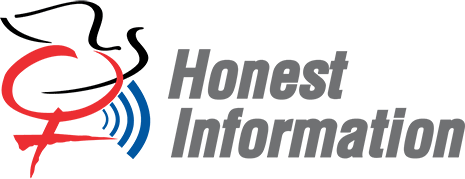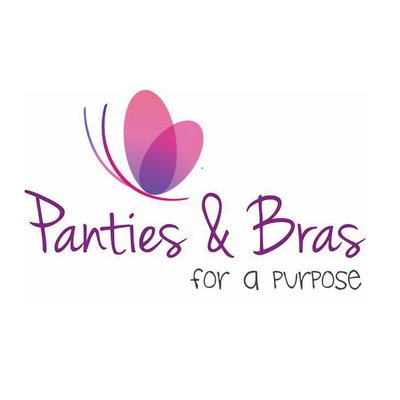Honest Information (HI)
“Underwear is a normal necessity for men, but it is essential for Women. In terms of health, it is very important for women because it is related to personal hygiene and because of shame and dignity,” said Ma Thazin Myo. She was responding to those who had criticized displaced women and women undertaking defense training in the jungle for citing underwear as a need.
Ma Thazin Myo, a native of Myebon Township in Rakhine State, also works as a women’s rights activist and previously worked for a civil society organization. She fled and is in hiding herself due to fear of military arrest, and she is now providing support to other displaced people. She is unable to do this alone, so she asked her friends and some business owners to provide as much support as possible to the displaced women.
Women’s underwear and sanitary pads are the not only pieces of clothing or luxury items, but rather they are needed to secure a woman’s body and mind. Some narrow-minded people are denouncing these needs as trivial, when in fact women’s underwear and sanitary pads are a significant need, both in terms of mental wellbeing and health.
Ma Nwe San Oo, 22, at Kyauk Taw Township from Rakhine State, who is living in Taung Min Kala IDP camp said: “Living without these things can lead to urinary tract infections and other similar infections.” She has been living in this IDP camp with her family for more than a year; when she first got her period in the camp, she didn’t know how to handle it without necessary resources and support, and faced many difficulties.
She said: “I was ashamed and embarrassed at the early dates of my period. I was also fearful of being seen by others as I had no underwear. That is why, my mother sewed with rag cloths but which was not easy. Sometimes I had to wear wet panties.”
She did not have enough pairs of underwear. She said she was afraid to be in-front of her brother and her father, and besides she was controlling the pain of menstruation. This is why she was so scared of facing her period days every month, because she had to control both the pain and the shame. Therefore, Ma San Nwe Oo highlighted, a woman should have at least three bras and five pairs of underwear.
In Rakhine State, in the past, heavy fighting between the Tatmadaw and the Arakan Army (AA) was ongoing for nearly two years. The fighting has de-escalated since November 2020 and the aid people were relying on has gradually dwindled to almost nothing. Displaced people had become dependent on the aid supplies, and there is now a shortage of underwear and monthly necessities for women in the IDP camps. In the past, the Center for Diversity and National Harmony (CDNH) regularly provided the underwear and sanitary pads for women in the camps, but now the women have not received any support for the last four months.
Women’s health needs are specific and unique to individuals. When we make donations of underwear, for example, we need to consider that there will be a range of sizes. Likewise with pads, different women need or prefer different sizes, relating to differences in their body size or menstruation.
Ma Thazin Myo, who is helping displaced people, said: “a variety of underwear sizes are given, but in some cases the sizes do not match up to the sizes of the women in the camps, and the products received therefore do not address the needs of the women in the camps. This is a difficulty when it comes to supporting bras especially for women in IDP camps.”
Buying these items themselves is impossible for the women as they are unable to earn money because of Covid-19 restrictions; usually, people would be able to generate a small income by going out of the camp, but under current restrictions this is not possible. It costs approximately 5,000 kyats for a set of underwear, which is equivalent to two days of meals for a family of six. So, the women prioritize meals for their family, as this is an urgent need, and are left with no money with which to meet their more long-term health needs.
Ma Nwe San Oo and her family have to walk almost an hour from the IDP camp to get water, which also contributes to poor hygiene in the community.
Underwear and menstrual pads are important to women for many reasons. When there is a shortage of these items, women risk infection, including gynecological diseases such as urinary tract infections. In the past, aside from providing food and shelter for IDP Camps, the government, NGOs and women’s organizations provided support according to the needs of women. It has not been so difficult with the support of these organizations in the past. However, many of such entities are currently unable to provide assistance to IDPs as they are in hiding, evading military arrest.
There are 134 IDP camps in Rakhine State with a population of over 96,000 people. Women account for over 50,000 of this number, according to data compiled by the Rakhine Ethnic Congress (REC).
Shortages in bras, underwear, and menstrual hygiene items are an issue not only in Rakhine State, but also in every conflict-affected area of Burma; these are challenges that every displaced woman is facing recently, as they flee from the fighting. In Paletwa Township, Southern Chin State there are over 3,000 women out of nearly 10,000 IDPs who are facing a similar situation in terms of the need for women’s underwear and menstrual hygiene items.
Daw Mai Than Hla, who is helping displaced women specifically said “recently, there is an urgent need for sanitary pads and contraceptive pills, as it has been out of stock for four months. The birth rate is rising” she said.
The A bomb explosion in Paletwa on May 28th caused more restrictions, blocking transportation along roads heading to Paletwa from Sami. Supplies sent from Rangoon are being blocked in Sami.
The journey from Yangon to Paletwa usually takes from 45 days to two months. Restrictions on transportation and blockades mean that it now takes about four months.
Ma Mai Yar, who is staying in one of the IDP camps in Paletwa, said: “when underwear, bras and monthly sanitary pads were out of stocks, we had to use leaves instead of pads. There was not even enough cloth for people to make their own instant sanitary pads. It is already insecure living here, but it feels more insecure without these women’s items.”
As a result of using whatever items they could find instead of pads, Mai Ya faced some women’s health problems such as infection from bacteria and vaginal discharge.
Ma Mai Yar and her family have been living in an IDP camp in Paletwa for almost two years. Due to the lack of support to meet their basic family needs, she could not properly care about her personal health. Most displaced people have to flee with only the clothes they can wear or carry, they leave all of their things behind. In their new location, they face many needs and do not have their own material possessions to address those needs, nor is it easy or possible for them to generate the extra income needed to fulfill those needs. For example, in Paletwa Covid-19 restrictions made it difficult for people to work to earn money, which is one of many reasons that the IDPs cannot take care of their health.
“I help as much as I can. But I cannot do it all alone. I cannot address all of the needs. It is getting even more difficult to do these things as we get limited support compared to the past. This is not good for the women. For those who have responsible person(Government, CSOs and any organization) need to make consideration for these matters”, said Daw Mai Than Hla.
Often donors donate only food; therefore, basic and essential needs of women, such as for underwear and menstrual hygiene, are often overlooked. Women’s menstrual pads should not be used for more than four hours, but women in IDP camps typically use their pads for 24 hours per pad. This causes unnecessary gynecological infections.
Similarly, women who go to liberated areas for defense training in the jungle face the same problems with the need for underwear and monthly necessities. For IDPs, contacting a donor may be a little easier, but women training in the jungle are likely to have difficulty communicating these needs.
Ma Ei Zin, a female soldier from Chin State said: “we need more hygiene items for monthly use because when they run out, it is not easy to go shopping. And the delivery person who brings things for us is a man, so it is not comfortable to order the kinds of things we want.”
“We need monthly pads and it is such important as, if we do not have enough to use, we cannot go to the battle ground or we will even be absent for military training during our monthly period.”
Ma Ei Zin has been in the jungle since March, and she is currently in military training. She recalled with a laugh her memory of her menstruation on the way back from their battle.
“After another battle, a woman got her period and she could not access her monthly sanitary pad,” she said. Her underwear was too wet and she did not have any extra. “One man saw this situation and ran to her, as he thought that she was wounded. That is why I had to explain to him that she was not wounded.”
It sounds like not a big thing, but a woman gets an unexpected period usually gets embarrassed. This could make her stay away from people. This happened due to a lack of underwear and monthly sanitary pads.
Ma Ei Zin reminds us that underwear and menstrual hygiene products are essential needs, which provide basic dignity to a woman, and are important for each woman’s health and can even lead to life-threatening infections if women do not have the resources and support they need, and thus need to use ad hoc products or use menstrual pads for extended periods of time. Most women in the military training have to use of underwear repeatedly and sanitary pads for too long in the camps she said.
In Myanmar culture, women’s sanitary pads and underwear are seen as shameful things to talk about by some people. Even though it is a necessity for every woman, people believe we do not need to discuss this publicly. It is often considered as both unimportant and rude to talk about this in public. Especially when it comes to talk about women’s underwear, they are often looked down upon. This is because talking about underwear has been restricted by traditional culture for many generations.
A recent post on social media by a revolutionary soldier (member of a so called PDF) stated that women’s menstrual kits are very useful to use as a tool to clear territory in areas with active fighting. He even said it is a useful material in first aid kits, for example to use as bandages, for those who have to walk many miles to the front lines. This is a good sign, giving hope that men will become more empathetic to women.
Ma Nwe San Oo reiterates the value of underwear and pads: “For women, underwear and sanitary pads are something to cherish as your lover. Underwear is a great way to enhance your self-confidence when you are around people in public, and even when you do not need when you are alone at home.”



